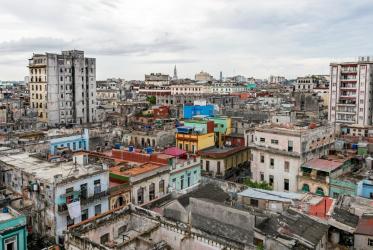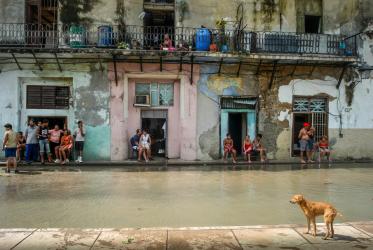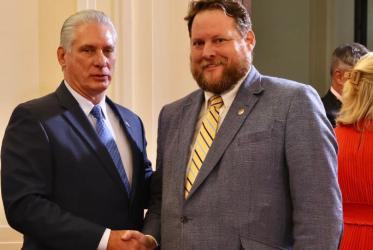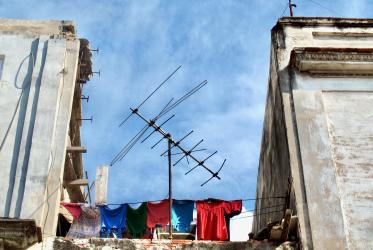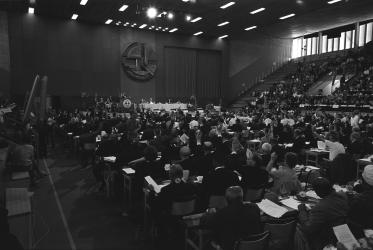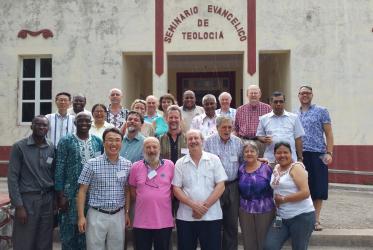Displaying 1 - 20 of 22
Chilean crisis sparks churches’ alarm and concern
24 October 2019
#WCC70: From ecumenical seeds
11 September 2018
#WCC70: A night talk with Fidel Castro
06 September 2018
Diakonia: “a tool to reach abundance of life”
24 July 2018
Seven weeks of Lent highlight water justice in Latin America
12 February 2018
Contributing to God’s mission takes many forms, finds gathering in Cuba
20 September 2016
Theologian explores emerging model of empowerment and diakonia
17 December 2015
Church leaders affirm Cuban religious reforms
09 July 2013
